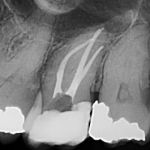Can Antibiotics Help Treat Gum Disease? Understanding the Role of Antibiotics in Periodontal Health
- What is Gum Disease?
- How Antibiotics Work for Gum Disease Treatment
- Benefits and Risks of Using Antibiotics for Gum Disease
- When Are Antibiotics Prescribed for Gum Disease?
- Real-Life Stories: How Antibiotics Helped in Gum Disease Treatment
- How to Maintain Healthy Gums Alongside Antibiotic Treatment
What is Gum Disease?
Gum disease, also known as periodontal disease, is an infection of the gums caused by the buildup of plaque and tartar on the teeth. If left untreated, it can lead to serious complications, including tooth loss. There are two main stages of gum disease: gingivitis and periodontitis. Gingivitis is the earliest stage, characterized by inflammation and bleeding of the gums. If not treated, gingivitis can progress to periodontitis, a more severe condition where the infection damages the bone and tissue supporting the teeth.
Understanding gum disease is crucial for taking preventative measures, including regular brushing, flossing, and professional cleanings. In some cases, antibiotics may be prescribed as part of a comprehensive treatment plan to help combat the infection.
How Antibiotics Work for Gum Disease Treatment
Antibiotics are often used to help treat gum disease, especially when the infection has spread beyond the surface and into the deeper tissues of the gums. These medications work by targeting the bacteria responsible for the infection, either by stopping their growth or killing them outright. Antibiotics can be administered in different forms, such as topical gels, oral tablets, or even as a component of dental procedures like scaling and root planing.
When antibiotics are prescribed for gum disease, they help reduce the bacterial load in the affected areas, promoting faster healing and reducing the risk of further complications. The goal is to control the infection and prevent it from spreading to other areas of the body, which can lead to more severe health problems.
Benefits and Risks of Using Antibiotics for Gum Disease
While antibiotics can be an effective tool in treating gum disease, it is essential to weigh both the benefits and risks before starting treatment.
- Benefits: Antibiotics can provide fast relief from pain and swelling associated with gum disease. They can also help prevent the spread of infection and improve the results of other treatments like deep cleaning or surgery.
- Risks: Overuse of antibiotics can lead to antibiotic resistance, making future infections harder to treat. Additionally, antibiotics may cause side effects such as nausea, diarrhea, and allergic reactions. It’s important for a dentist or periodontist to assess whether antibiotics are necessary for each individual case.
Ultimately, antibiotics should be used as part of a broader treatment plan that includes good oral hygiene practices and regular dental visits.
When Are Antibiotics Prescribed for Gum Disease?
Antibiotics are typically prescribed in cases of moderate to severe gum disease where the infection has reached deeper into the gums and supporting bone. A dentist may recommend antibiotics if you have:
- Advanced periodontitis with significant gum tissue damage.
- A risk of infection spreading to other parts of the body (e.g., heart disease or diabetes).
- Deep periodontal pockets that cannot be fully cleaned by standard scaling and root planing alone.
In these cases, antibiotics serve as an adjunct to other treatments like scaling, root planing, or even surgery to ensure that the infection is fully controlled and to improve the long-term prognosis for your gums.
Real-Life Stories: How Antibiotics Helped in Gum Disease Treatment
Let’s take a look at some real-life stories where antibiotics played a key role in treating gum disease. Take the case of John, a 45-year-old man who had been suffering from swollen, bleeding gums for months. Despite following a daily oral care routine, his condition worsened, and he was diagnosed with periodontitis. His periodontist prescribed a course of oral antibiotics along with scaling and root planing. Within a few weeks, John noticed a significant reduction in swelling and bleeding, and his gums began to heal. "The antibiotics really helped clear up the infection, and I felt a huge difference in the health of my gums," John said.
Another case involves Sarah, who had struggled with gum disease for several years. After a deep cleaning, her periodontist recommended a topical antibiotic to apply directly to the gum pockets. Sarah reported that the antibiotic treatment, combined with a better at-home care routine, helped her manage her gum disease more effectively and avoid further damage to her teeth and gums.
How to Maintain Healthy Gums Alongside Antibiotic Treatment
While antibiotics can be incredibly effective in treating gum disease, maintaining healthy gums requires consistent effort and care beyond just medication. Here are some tips to help you maintain optimal gum health:
- Brush Regularly: Brush your teeth at least twice a day with a fluoride toothpaste to remove plaque and prevent the buildup of harmful bacteria.
- Floss Daily: Flossing removes food particles and plaque from between your teeth and below the gum line, areas that a toothbrush can’t reach.
- Regular Dental Visits: Regular checkups with your dentist will help identify and treat any potential issues before they worsen.
- Avoid Smoking: Smoking is a major risk factor for gum disease and can interfere with the healing process, so it’s crucial to quit if you haven’t already.
By combining antibiotics with proper oral hygiene and regular dental visits, you can effectively manage and prevent gum disease.







 Aspen Dental - Plymouth, MA4.0 (306 review)
Aspen Dental - Plymouth, MA4.0 (306 review) North Penn Endodontics Group4.0 (87 review)
North Penn Endodontics Group4.0 (87 review) Dental Bright advanced family dentistry & orthodontics4.0 (69 review)
Dental Bright advanced family dentistry & orthodontics4.0 (69 review) aspen dental, Kevin D. Oh, LLC2.0 (8 review)
aspen dental, Kevin D. Oh, LLC2.0 (8 review) Grady Dental Care5.0 (281 review)
Grady Dental Care5.0 (281 review) Aspen Dental - Glendale, AZ4.0 (602 review)
Aspen Dental - Glendale, AZ4.0 (602 review) The Importance of Oral Health Education During Pregnancy for a Healthy Pregnancy
The Importance of Oral Health Education During Pregnancy for a Healthy Pregnancy Best Tips for Brushing Your Teeth Properly for Healthy Gums: Essential Techniques for Oral Health
Best Tips for Brushing Your Teeth Properly for Healthy Gums: Essential Techniques for Oral Health Why Skipping Dental Checkups Can Lead to Bigger Oral Health Problems
Why Skipping Dental Checkups Can Lead to Bigger Oral Health Problems Advantages of Porcelain Dental Restorations
Advantages of Porcelain Dental Restorations How Can Diabetes Cause Tooth and Gum Problems? Preventing and Managing Oral Health Issues
How Can Diabetes Cause Tooth and Gum Problems? Preventing and Managing Oral Health Issues Healthy Habits for Promoting Good Oral Health and Hygiene: Tips for a Healthy Smile
Healthy Habits for Promoting Good Oral Health and Hygiene: Tips for a Healthy Smile